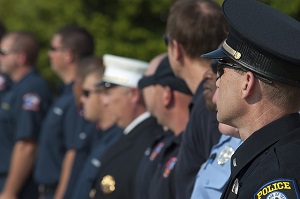Sample Essay on History of International Law Enforcement

International law enforcement treats police actions, which regard jurisdictions or individuals of more than one nation. The process of the internationalisation of law enforcement started in nineteenth century with the increase of the internationalisation of crime. Over the past decades this process accelerated immensely.
In the history of international law enforcement development there have been two particular trends. First, the focus on political dissidents shifted to criminal activities. The second trend refers to a structural shift from unilateral operations to cooperations between agencies from different nations.
The first attempt to create an international law enforcement organisation was undertaken in 1851. The Police Union of German States included agencies from seven German-speaking nations, which had political objectives to protect autocratic regimes.
In 1914 the government of Monaco launched an International Criminal Police Congress that was strictly directed to criminal violations. Nine years later the the International Criminal Police Commission, the forerunner of today’s Interpol, was created in Europe. It was independently organised by police officials to contribute cooperation in the international crime policing while political violations were excluded.
However, despite a growing cooperation among police, a national orientation remains among law enforcement in three ways: 1) there is a privilege among agencies to pursue operations unilaterally without the foreign authorities; 2) cooperation between foreign agencies is often undertaken on a temporary basis; 3) international law enforcement does not provide the creation of a supranational agency, it involves a cooperative structure among police agencies from different nations.
Agencies in the United States are involved in unilateral interstate law enforcement operations because of concerns about unprofessionalism and corruption as well as a historic distrust in foreign agencies. The United States have a predominant role in international police activities while American law enforcement agencies are more active in international activities. Those agencies include the Federal Bureau of Investigation, the Bureau of Diplomatic Security, the Department of Homeland Security, and the Drug Enforcement Agency.
Among international law enforcement cooperation the major organisations are Interpol and Europol. Interpol, or the International Criminal Police Organisation, has member agencies from 186 countries. This non governmental organisation has an observer status at the United Nations, as well as cooperation agreements with Europol and other legal and police organisations.
Europol, the European Police Office, promotes cooperation among law enforcement agencies in Europe, when policing significant international crimes. Its operations are limited to organised crime activities, like corruption, terrorism, human, drug and vehicle trafficking, cyber-crimes. Europol is overseen by the EU Council, the European Management Board, and a joint supervisory board.
Nowadays, multilateral organisations like Europol and Interpol operate as the basis of information exchange and cooperation among law enforcement agencies all over the world. Such cooperation occurs among nations with different legal and political frameworks because of its non-political nature, the bureaucratic autonomy of law enforcement, and understanding of crime among the law enforcement professionals. Therefore, crimes, which cross national jurisdictions, such as international terrorism, the drug trade, border crimes, can be effectively investigated through the law enforcement cooperation.
References:
- Andreas, P. and E. Nadelmann. Policing the globe. New York: Oxford University Press, 2006.
- Casey, J. Policing the world: The practice of international and transnational policing. Durham, NC: Carolina Academic Press, 2010.
- Das, D.K. and P.C. Kratcoski, eds. Meeting the challenges of global terrorism: prevention, control, and recovery. Lanham, MD: Lexington Books, 2003.
- Bayer, M.D. Operation global pursuit: in pursuit of the world’s most dangerous fugitives and terrorists. The Police Chief 72(8), 32-37, 2005.
- Bayer, M.D. The Blue Planet: Informal international police networks and national intelligence. Washington, DC: NDIC press, 2010.
- Deflem, M. Policing world society: Historical foundations of international police cooperation. Oxford: Oxford University Press, 2002.
- Martha, R.S.J. The Legal Foundations of Interpol. Oxford, UK: Hart, 2010.